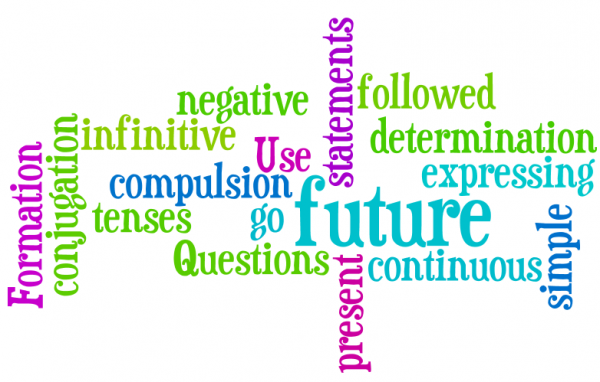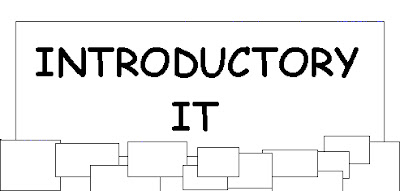- also called a main verb
- a verb that has a subject
- a verb that shows tense, person, and number
- can be the main verb in a sentence
Senin, 27 Februari 2012
Finite Verb
Definition Of Finite Verb :
Minggu, 26 Februari 2012
VOCABULARY AROUND THE HOUSE
Definition of house :
as Nouns
- a dwelling that serves as living quarters for one or more families.
- the members of a business organization that owns or operates one or more establishments.
- the members of a religious community living together.
- the audience gathered together in a theatre or cinema
- an official assembly having legislative powers
- aristocratic family line
- play in which children take the roles of father or mother or children and pretend to interact like adults.
- the management of a gambling house or casino.
- a social unit living together.
- a building where theatrical performances or motion-picture shows can be presented.
- a building in which something is sheltered or located.
as Verbs
- contain or cover.
- provide housing for.
Sabtu, 25 Februari 2012
SURPRISES and DISBELIEFS
Surprise or
disbeliefs is :
- a feeling that we feel when we heard an amazing news which surprised and amazed us
- an expression that we show/say when we know/hear/see something that rather difficult to believe
- used to express something that we can’t or impossible.
PASSIVE VOICE
Use of Passive
Passive voice is used when the focus is on the action. It is not important or not known, however, who or what is performing the action.
Example: My bike was stolen.
In the example above, the focus is on the fact that my bike was stolen. I do not know, however, who did it.
Passive voice is used when the focus is on the action. It is not important or not known, however, who or what is performing the action.
Example: My bike was stolen.
In the example above, the focus is on the fact that my bike was stolen. I do not know, however, who did it.
Sometimes a statement in passive is more polite than active voice, as the following example shows:
Example: A mistake was made.
SIMPLE FUTURE
The simple
future tense is often
called will, because we make the simple future tense with the modal
auxiliary will.
NOUN PHRASES
Noun is a word
that names a person, animal, place, thing, idea, or concept, or anything
considered as noun
The Noun examples
• Persons: girl, boy, instructor, student, Mr. Smith, Peter, president
• Animals: dog, cat, shark, hamster, fish, bear, flea
• Places: gym, store, school, Lake Minnetonka, Minnesota, village, Europe
• Things: computer, pen, notebook, mailbox, bush, tree, cornflakes
• Ideas: liberty, panic, attention, knowledge, compassion, worship
The Noun examples
• Persons: girl, boy, instructor, student, Mr. Smith, Peter, president
• Animals: dog, cat, shark, hamster, fish, bear, flea
• Places: gym, store, school, Lake Minnetonka, Minnesota, village, Europe
• Things: computer, pen, notebook, mailbox, bush, tree, cornflakes
• Ideas: liberty, panic, attention, knowledge, compassion, worship
OFFERING
1. The act of making an offer.
2. Something, such as stock, that is offered.
3. A presentation made to a deity as an act of religious worship or sacrifice; an oblation.
4. A contribution or gift, especially one made at a religious service.
2. Something, such as stock, that is offered.
3. A presentation made to a deity as an act of religious worship or sacrifice; an oblation.
4. A contribution or gift, especially one made at a religious service.
NEWS ITEM
Social
function of news item is: to inform readers, listeners or viewers about events
of the day which are considered newsworthy or important
.
.
NARRATIVE TEXT 2
Narrative
text is a kind
of text that has function to entertain, create, stimulate emotions, motivate,
guide, and teach the reader which contains about story (fiction/non
fiction/tales/folktales/ fables/myths/epic) and in its plot consists of climax
of the story (complication) then followed by the resolution.
INTRODUCTORY IT
When the subject is an infinitive phrase, the sentence often
begins with it. Instead of saying ‘To find fault with
others is easy’, we say, ‘It is easy to find fault with others’.
More examples are given below.
- It is easy to learn English. (More natural than ‘To learn English is easy’.)
- It was not easy to understand his motive.
- It may be advisable to consult a specialist.
- It could be dangerous to drive so fast.
- It was pleasant to sit on the beach.
GRATITUDE, COMPLIMENT, AND CONGRATULATION
1.GRATITUDE
Gratitude is an expression that we show or say to express grateful
feeling to other people. When speaking English, you say “thanks” very often.
Please say “thank you” when people give you something, help you do something,
wish you something and give you a compliment etc.
DIRECT & INDIRECT SPEECH
Direct speech : refers to reproducing another persons excact word. We use quotation marks.
Example of Direct Speech :
1. Jani said, “I’m very busy .”
2. They said, “We have bought a picture.”
3. He said, “I am learning my lesson.”
4. Lisa says, “I got the first prize.”
5. You said, “I will come to help him.”
6. Oskar will say, “I will do my best.”
1. Jani said, “I’m very busy .”
2. They said, “We have bought a picture.”
3. He said, “I am learning my lesson.”
4. Lisa says, “I got the first prize.”
5. You said, “I will come to help him.”
6. Oskar will say, “I will do my best.”
ASKING IF SOMEONE REMEMBERS OR NOT
- I wonder if you remember.....
- You remember...., don’t you?
- You haven’t forgotten...., have you?
- Don’t you remember.....?
- Do you happen to remember it now?
Asking For Information
Asking for information is one way of communicating the purpose of
obtaining or asking for information person unknown.
Senin, 06 Februari 2012
Sympathy Expressions
Sympathy Expressions
 The definition of sympathy expression:
The definition of sympathy expression:
Sympathy expression is an expression or feeling of pity and sorrow when we know and see someone or people are unlucky or have trouble and in bad condition. By expressing sympathy we want to show our concern or carefulness on other people’s condition.
How can we give sympathy expression to someone?
We express it directly to him/her orally or we can use a letter or card by post also by short message service (SMS), e-mail, television, radio, and newspaper if he/she who got the trouble is far from us.
Sympathy expression is an expression or feeling of pity and sorrow when we know and see someone or people are unlucky or have trouble and in bad condition. By expressing sympathy we want to show our concern or carefulness on other people’s condition.
How can we give sympathy expression to someone?
We express it directly to him/her orally or we can use a letter or card by post also by short message service (SMS), e-mail, television, radio, and newspaper if he/she who got the trouble is far from us.
Recount Text
The Definition Of Recount Text
Recount text is a text that is used to retell events for the purpose of informing or entertaining.
The generic structures of recount text are :
- Orientation ( it gives the readers the background information needed to understand the text such as who was involved, where it happened, when it happened)
- Events (a series of events, ordered in a chronological sequence)
- Re-orientation (restates the writer’s opinion or personal comment of the writer on the incident.
Prepositional Phrase
PREPOSITIONAL PHRASE
Recognize a prepositional phrase when you see one.
At the minimum, a prepositional phrase will begin with a preposition and end with a noun, pronoun, gerund, or clause, the "object" of the preposition.
The object of the preposition will often have one or more modifiers to describe it. These are the patterns for a prepositional phrase:
• preposition + noun, pronoun, gerund, or clause
• preposition + modifier(s) + noun, pronoun, gerund, or clause
Recognize a prepositional phrase when you see one.
At the minimum, a prepositional phrase will begin with a preposition and end with a noun, pronoun, gerund, or clause, the "object" of the preposition.
The object of the preposition will often have one or more modifiers to describe it. These are the patterns for a prepositional phrase:
• preposition + noun, pronoun, gerund, or clause
• preposition + modifier(s) + noun, pronoun, gerund, or clause
Minggu, 05 Februari 2012
Procedure Text
The Definition Of Procedure Text
Procedure text is a text that is designed to describe how something is achieved through a sequence of actions or steps. It explains how people perform different processes in a sequence of steps. This text uses simple present tense, often imperative sentences. It also uses the temporal conjunction such as first, second, then, next, finally, etc.
Sabtu, 04 Februari 2012
Perfect Tense
Present Perfect Tense is used for describing a past action’s effect on the present: He has arrived. Now he is here. This holds true for events that have just been secluded as well as for events that have not yet occurred.
Present perfect is formed by combining have/has with the main verb’s past participle form:
I have arrived.
A negation is produced by inserting not after have/has:
I have not arrived.
Present Tense
- The simple present is used:to express habits, general truths, repeated actions or unchanging situations, emotions and wishes: I smoke (habit); I work in London (unchanging situation); London is a large city (general truth)
- to give instructions or directions: You walk for two hundred meters, then you turn left.
- to express fixed arrangements, present or future: Your exam starts at 09.00
Jumat, 03 Februari 2012
Past Tense
Past Tense
Simple past is formed for regular verbs by adding –ed to the root of a word. Example: He walked to the store. A negation is produced by adding did not and the verb in its infinitive form. Example: He did not walk to the store. Question sentences are started with did as in Did he walk to the store?
Simple past is used for describing acts that have already been concluded and whose exact time of occurrence is known. Furthermore, simple past is used for retelling successive events. That is why it is commonly used in storytellin.
Narrative Text
The definition of narrative text:
- A text which contains about story (fiction/non fiction/tales/folktales/fables/myths/epic) and its plot consists of climax of the story (complication) then followed by the resolution.
- A narrative text is a text amuse, entertain and deal with actual or vicarious experience in different ways. Narrative deal with problematic events which lead to a crisis or turning point of some kind, which in turn finds a resolution.
Kamis, 02 Februari 2012
Invitation
Invitation
Invitation is a
way to invite someone or more to go to a place or to do something.
There are two
types of invitation.
FORMAL INVITATION
Formal invitation
is usually originate from Institutes, Companies and a kind of it. Normally
formal invitation is written invitation.
INFORMAL
INVITATION
Informal
invitation is personal invitation given to a friend, family, etc. Informal
invitation can be written invitation and verbal invitation.
Rabu, 01 Februari 2012
Happiness Expressions
Happiness Expressions
What would you say to express your happiness?
- I’m happy……
- I’m (very)pleased / (really) delighted
(about)….
- I can’t say how pleased / delighted I am
about it
- I am so glad to hear that
- Great!
- Terrific!
- Fantastic!
Respond
- I’d love too
- You are right
- I think so
- I do, too
Senin, 30 Januari 2012
Greeting (Salam)
Greeting is an act of communication in which human beings (as well as other members of the animal kingdom) intentionally make their presence known to each other, to show attention to, and to suggest a type of relationship or social status between individuals or groups of people coming in contact with each other. While greeting customs are highly culture- and situation-specific and may change within a culture depending on social status and relationship, they exist in all known human cultures. Greetings can be expressed both audibly and physically, and often involve a combination of the two. This topic excludes military and ceremonial salutes but includes rituals other than gestures.
Selasa, 17 Januari 2012
Giving Instruction (Memberikan Intruksi)
Announcement (pengumuman)
The definition of announcement
Announcement is something said, written, or printed to make known what
has happened or (more often) what will happen.
Sabtu, 14 Januari 2012
Gaining Attention (Perhatian)
Gaining attention is a way or expression that is spoken so that other
people will pay their attention to what
we want to.
The example
expressions of gaining attention :
- Attention, please
- May/can I have your attention, please?
- Excuse me, look here!
- Listening to me, please
- Waiter?
- I'm sorry, but....
- Wow really?
- Excuse me.
- Look here.
- Look at me please.
- I hope you can attention me.
- Silent, please !
- Be quite !
- Don't be noisy !
Appointment (janji)
Appointment
Appointment
is a kind of expression which is used to conduct appoint. Here are 5 kind of
appointment.
 Making
an appointment
Making
an appointment
·
I’d like to make an appointment with Kristian
·
I want to make
an appointment to see…..
·
I’d like you to come and see
· Can I come and see you?
·
I’ll be there
·
What about….(thank you)
·
Will
you go out with me tonight?
·
What
if we go swimming this afternoon?
·
Let’s
do something to help the flood victims
Kamis, 12 Januari 2012
Advertisement (iklan)
Hallo semuanya, pertama-tama
saya akan memberikan pelajaran tentang advertisement atau sering
disebut iklan. Inilah definisinya :
Advertisement is information for persuading and motivating people so that they will attract to the service and the thing that are offered or informed.
Advertisement is information for persuading and motivating people so that they will attract to the service and the thing that are offered or informed.
Langganan:
Postingan (Atom)




















